Suggestion for the Code of Conduct and Ethics below defines the fundamental principles that all directors, officers, and employees of the [Company] should follow to contribute to fighting the global illegal wildlife trade.
Reason to adopt:
- Protect wildlife and biodiversity
- Prevent disease transmission
- Become a fully law-abiding and socially responsible business entity
Details:
- We will, in good faith and compliance, act under all wildlife and biodiversity laws, rules, regulations, the Penal Code, and social norms of Vietnam in all aspects of business activities.
- Safety will be our top priority in all of our business activities to prevent the risk of zoonotic disease.
- We will develop and provide wildlife-free products and services.
- We will refrain from providing any form of wildlife entertainment or carry out wildlife gift-giving to Vietnamese and international public officials and business partners to obtain improper business deals or advantage.
- We will always pursue the group’s interests over personal; such as not receiving wildlife gifts or allowing wildlife entertainment in the course of conducting our business.
- All members of the [Company], inclusive of all positions held, are actively discouraged to consume any products made from or containing parts of endangered wild animals. Any of these products that are consumed contribute to the capture and killing of wild animals, funding the illegal wildlife trade and pushing species to extinction, negatively impacting habitats and ecosystems. The consumption of wild meat and raising wild animals as pets is an increasing threat, poses a great risk to human health, and might even be the source of the next global infectious diseases.
Wildlife in foods and pet trade
Bushmeat is the meat from wild animals consumed in many African and Asian countries. The common wild meat that is often consumed illegally in Vietnam and around Asia are pangolins, wild birds, wild snakes, primates, civets and sea turtles. The poorly cooked and preserved wild meat is illegally shipped across the country or worldwide which creates potential conditions to spread dangerous zoonotic diseases. The consumption of wild meat and the desire to keep “exotic” wild animals as pets go hand-in-hand and are a growing threat with major consequences, for humans and ecosystem health alike. When adult animals are hunted for meat, baby animals are captured and sold as pets in illegal wildlife markets around the world. Wild animals kept as pets such as primates, reptiles, and birds, commonly carry pathogens that cause serious diseases to humans.
Wildlife products in traditional medicines
Some traditional medicines may contain parts and products from wild animals, including those from endangered species such as rhino horns, pangolin scales, Asiatic black bear gallbladder and bile, tiger and leopard bones, glands from musk deer, and Saiga antelope horns. Several other wild animal species are often used as a whole to make traditional medicines including pangolins, crocodiles, turtles, snakes, lizards, and primates. Even if these medicines are in tablet or capsule forms, they may be illegal for sale in most countries and illegal to take across international borders.
Products from tusks, teeth, bones, and claws from mammal and reptiles
Ivory from elephants is one of the high-profile animal products and is viewed as a luxury good in many Asian countries including Vietnam. Elephant ivory can be sold in many different forms including jewelry, carved figurines, bangles, or chopsticks. This kind of appetite for ivory products fuels poaching and is responsible for pushing elephants towards extinction. Other wildlife products such as teeth, tusks, and bones from endangered tigers, bears, whales, narwhals, seals, walruses, and crocodiles may also be sold as jewelry, carvings or as charms. These animals will have been killed purely for such small items for human consumption.
Products from birds
Bird products, including quills, feathers, or beaks may also be used for decorative or novelty items. Around the world and especially in Vietnam, many bird species are extremely close to extinction. Buying live birds or any kind of product made from their parts supports and encourages the illegal wildlife trade and potentially spreading diseases such as bird flu.
Products from reptile skins
Many reptile skins from snakes and crocodiles may be used for fashion products like handbags, wallets, belts, footwear, and hats. Most crocodile species are now so critically endangered, farms now breed them for meat and skins. The crocodiles are kept in large numbers in small concrete pools. This leads to awful, unnatural, overcrowded conditions followed by inhumane deaths. Snakes are often caught in the wild and very inhumanely slaughtered for their skins.
Products from furs
Furs from wild animals are typically used in fashion items, trinkets, lucky charms, and also in traditional materials. Wild animal furs commonly derive from endangered wild cats, including tigers, leopards, ocelots, jaguars, usually caught in traps, and left in extreme pain. Furs used in trims and coats in fashion outlets will most commonly be sourced in intensive farms. They are kept in appalling conditions and almost always skinned alive, very inhumanely.
Products from turtle and tortoise shells
All species of sea turtles are endangered and are prohibited in international trade. Boots, handbags, combs, hairbrushes, cigarette cases, spectacle frames, and jewelry or whole shells as decoration are just a few goods made from turtle and tortoise shells. Turtle and tortoise eggs and meat can also be found in food and skincare products. Recent studies show that the populations of all sea turtle species in Vietnam are in serious decline: the green turtle population has decreased by 75%, the hawksbill turtle and olive ridley turtle have decreased by 95%, the leatherback by 99%, compared to the 1980s.




One Comment
Động vật hoang dã cần được bảo vệ. Sự biến mất của động vật hoang dã làm lủng đoạn cân bằng hệ sinh thái. Ảnh hưởng sâu sắc đến tương lai toàn nhân loại. Bảo tồn động vật hoang dã là niềm hy vọng cho con cháu ta sau này.